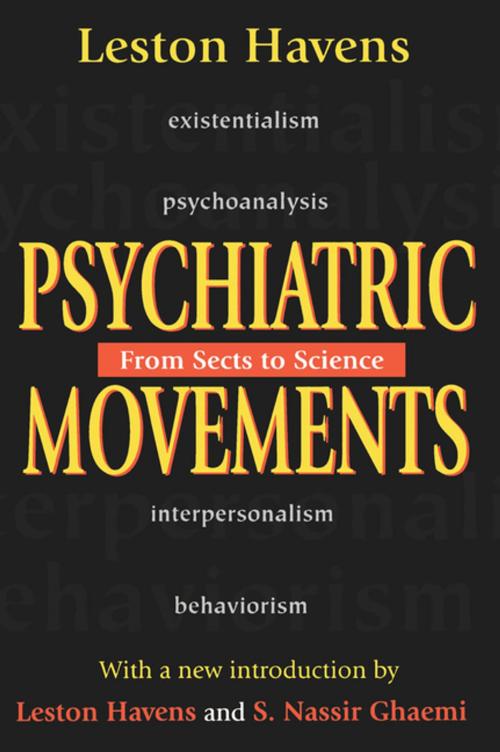Psychiatric Movements
From Sects to Science
Nonfiction, Health & Well Being, Medical, Specialties, Psychiatry, Psychology| Author: | Leston Havens | ISBN: | 9781351307826 |
| Publisher: | Taylor and Francis | Publication: | April 24, 2018 |
| Imprint: | Routledge | Language: | English |
| Author: | Leston Havens |
| ISBN: | 9781351307826 |
| Publisher: | Taylor and Francis |
| Publication: | April 24, 2018 |
| Imprint: | Routledge |
| Language: | English |
In the early 1970s, the preeminence of psychoanalysis in the treatment of mental illness gave way to a number of other approaches. Yet, rather than practicing in cooperation, the different schools--existentialism, psychoanalysis, interpersonalism, behaviorism--each taught its own methods, convinced it was the true psychiatry. As a result, all too frequently, varieties of psychiatry have come and gone, wallowing in a battle of sects rather than progressing toward knowledge.
In Psychiatric Movements, Leston Havens posits that psychiatry must adopt a pluralistic stance, for only an inclusive psychiatry can bridge the traditional scientific quest of medicine with a humanistic interest in whole lives, inner states, and relationships with others. If for no other reason, from an ethical standpoint, the patient should get the treatment he needs, not the one treatment the doctor dispenses. This edition includes a new introduction explaining changes in the field during the last thirty years.
In the early 1970s, the preeminence of psychoanalysis in the treatment of mental illness gave way to a number of other approaches. Yet, rather than practicing in cooperation, the different schools--existentialism, psychoanalysis, interpersonalism, behaviorism--each taught its own methods, convinced it was the true psychiatry. As a result, all too frequently, varieties of psychiatry have come and gone, wallowing in a battle of sects rather than progressing toward knowledge.
In Psychiatric Movements, Leston Havens posits that psychiatry must adopt a pluralistic stance, for only an inclusive psychiatry can bridge the traditional scientific quest of medicine with a humanistic interest in whole lives, inner states, and relationships with others. If for no other reason, from an ethical standpoint, the patient should get the treatment he needs, not the one treatment the doctor dispenses. This edition includes a new introduction explaining changes in the field during the last thirty years.















